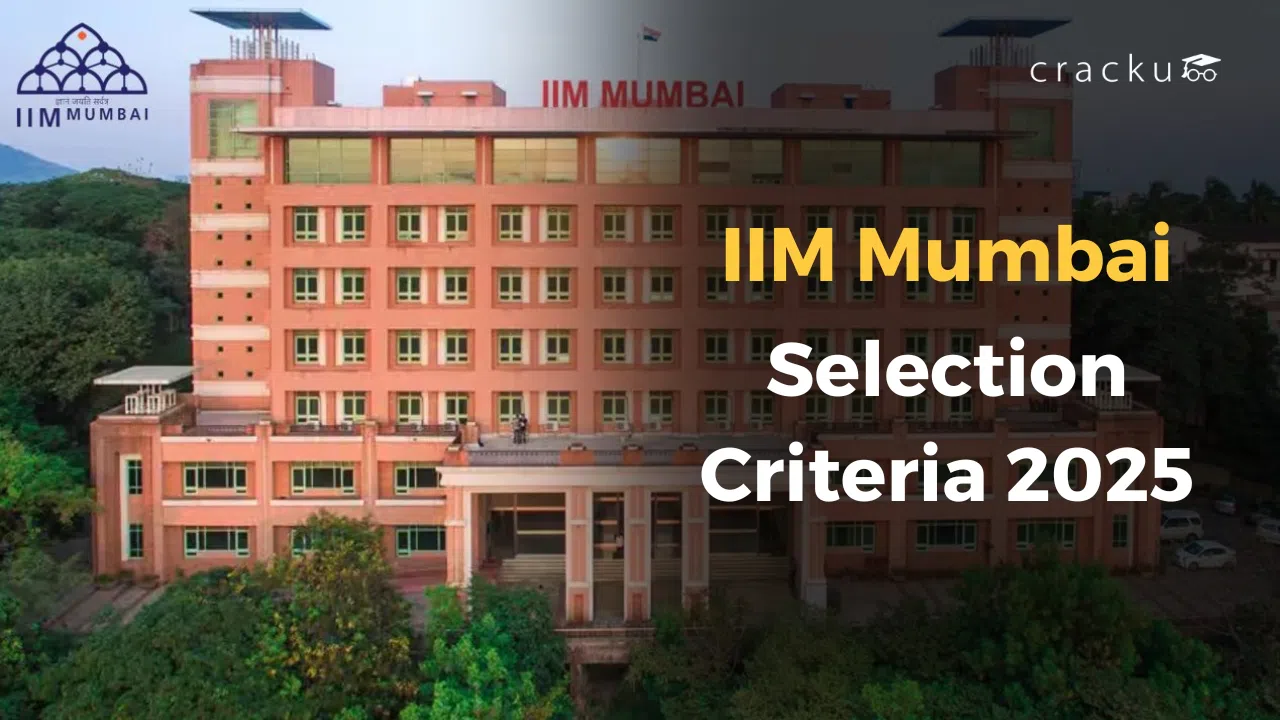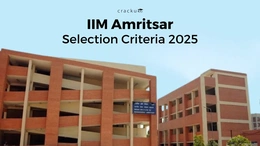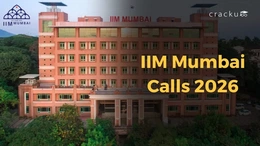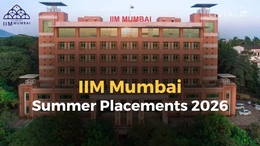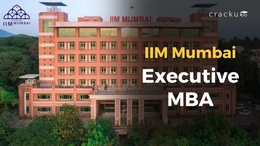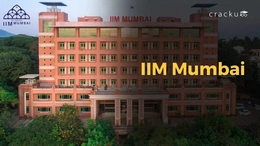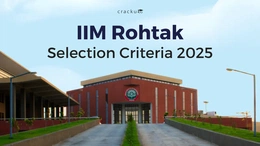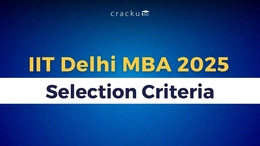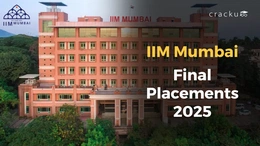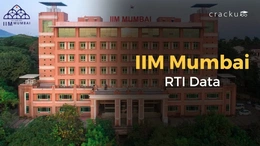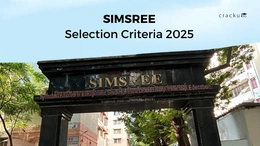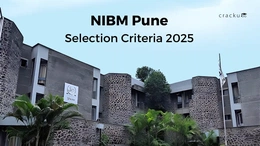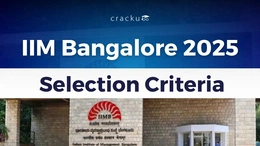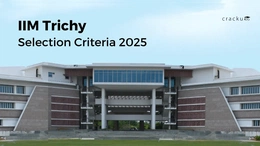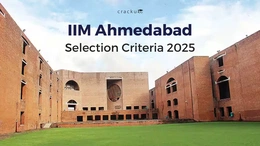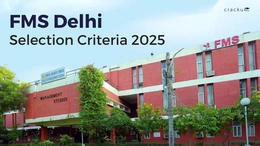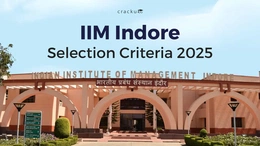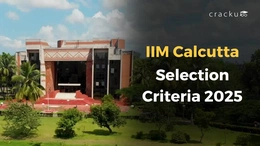IIM Mumbai Selection Criteria 2025: The IIM Mumbai selection process for 2025-2027 will start soon. However, the admission portal closing dates for MBA, MBA-OSCM and MBA-SM admissions 2025-2027 will be 31 Jan 2025. The declaration of CAT cutoff followed by selection and screening rounds will be conducted by 07 Feb 2025. The PI call letter will be dispatched by 14 Feb 2025.
To be eligible for MBA admission to IIM Mumbai, candidates must have a Bachelor’s Degree with at least 50% marks. Applicants should take the CAT 2024 and clear the minimum cutoffs (≥85 for the general category) to apply for the programs. At IIM Mumbai, 27% of the seats are reserved for NC-OBC while 15% are reserved for the SC category.
IIM Mumbai Selection Criteria 2025
The IIM Mumbai admission is ongoing. Interested candidates can check the table below for IIM Mumbai selection Criteria 2025. The admission criteria for the MBA Programme in 2025-27 are provided below.
| IIM Mumbai | Selection Criteria |
| Eligibility Criteria | The candidate must hold a bachelor’s degree, with at least 50% marks (45% for reserved category) |
| Criteria for shortlisting and final selection for the MBA Programme | Candidates are shortlisted based on CAT 2024 score and concerned reservation category. |
| Stage I | Minimum CAT percentile cutoffs along with sectional cutoffs to be considered for PI |
| Stage II | Shortlisting for Personal Interview |
| Stage III | Final Selection for the MBA Programme |
| Reservation | To receive reservation benefits, candidates must carefully mark the category to which they belong in the IIM Mumbai application form. |
Also Read, IIT Bombay MBA Selection Criteria 2025, Application Form PDF
IIM Mumbai Minimum Cutoffs 2025
The IIM Mumbai minimum cutoff includes the minimum marks required for admission to IIM Mumbai in 2025. The minimum CAT percentile cutoff necessary for PI shortlisting (Stage 1) are listed in the table below.
| Category | VARC | DILR | QA | Overall |
| Open | ≥80 | ≥80 | ≥75 | ≥85 |
| NC-OBC | ≥70 | ≥65 | ≥65 | ≥75 |
| EWS | ≥70 | ≥65 | ≥65 | ≥75 |
| SC | ≥65 | ≥60 | ≥60 | ≥70 |
| ST | ≥55 | ≥55 | ≥55 | ≥65 |
| PwD | ≥45 | ≥45 | ≥45 | ≥55 |
Also Read, IIM Calcutta Selection Criteria 2025, Admission Process PDF
IIM Mumbai Final Selection Criteria
Rating Scores for the 10th Std. Examination
| Percent Score in 10th Std. Exam | Rating Score |
|---|---|
| <= 55 | 1 |
| > 55 and <= 60 | 2 |
| > 60 and <= 70 | 3 |
| > 70 and <= 80 | 5 |
| > 80 and <= 90 | 8 |
| > 90 | 10 |
10th Std Multiplication Factor = 0.7
Rating Scores for the 12th Std. Examination
Science Stream
| Percent Score in 12th Std. Exam | Rating Score (B) |
|---|---|
| <= 55 | 1 |
| > 55 and <= 60 | 2 |
| > 60 and <= 70 | 3 |
| > 70 and <= 80 | 5 |
| > 80 and <= 90 | 8 |
| > 90 | 10 |
Also Read, IIM Mumbai Placements 2025, Top Recruiters, Average Package
Commerce Stream
| Percent Score in 12th Std. Exam | Rating Score (B) |
|---|---|
| <= 50 | 1 |
| > 50 and <= 55 | 2 |
| > 55 and <= 65 | 3 |
| > 65 and <= 75 | 5 |
| > 75 and <= 90 | 8 |
| > 90 | 10 |
Also Read, SIMSREE Selection Criteria 2025, Admission Dates, Minimum Cut Off
Arts/Humanities Stream
| Percent Score in 12th Std. Exam | Rating Score (B) |
|---|---|
| <= 45 | 1 |
| > 45 and <= 50 | 2 |
| > 50 and <= 60 | 3 |
| > 60 and <= 70 | 5 |
| > 70 and <= 85 | 8 |
| > 85 | 10 |
12th Std Multiplication Factor = 0.7
Work Experience Points
Rating Scores for Work Experience
| Work Experience in Months (as filled in IIM Mumbai Application Form) | Rating Score (D) |
|---|---|
| < 12 months | 0 |
| >= 12 and <= 36 months | MF * (number of months of work experience – 11) |
| > 36 months | 5 |
Work-experience Multiplication Factor (MF) = 0.20
Also Read, IIM Mumbai Executive MBA 2025, Dates, Admission Process, Fees
IIM Mumbai Eligibility Criteria 2025
The IIM Mumbai eligibility Criteria comprises a bachelor’s degree with at least 50% marks. Interested candidates can check the IIM Mumbai minimum eligibility crieteria in the table provided below.
| IIM Mumbai | Eligibility Criteria |
| Academic Qualifications | Bachelor’s Degree, with at least 50% marks or equivalent CGPA (45% for SC, ST and PwD categories) |
| Final Year Students | Final year students can apply provided they qualify the academic qualification criteria and complete their examination, viva voce etc, by the time of joining the Institute. |
| Entrance Test | Applicants should take the CAT 2024 conducted by IIM to apply for the programs. |
Also Read, IIM Mumbai MBA Fees 2025, Fee Structure, Scholarship
IIM Mumbai Reservation Policy 2025
IIM Mumbai makes reservations as per the requirements of the Government of India. The reservations criteria at IIM Mumbai for SC, ST, OBC, etc is given below.
| Categories | Reservation Criteria |
| NC-OBC | 27% |
| SC | 15% |
| ST | 7.5% |
| PwD | 5% |
| EWS | 10% |
Also Read, IIM Mumbai, Programs, Selection Criteria, Cut off, Placements
IIM Mumbai Personal Interview
Candidates are called for PI based on their CAT-2024 score and sectional cutoffs considering their reservation category. Check the table below for parameters and weights for calculation of composite score for final selection based on CAT score, PI and academic performance of the MBA programme.
| Parameters | Weights |
| CAT 2024 score | 60 |
| PI | 20 |
| Academic Performance & Work Experience Score | 20 |
| Total | 100 |
Also Read, IIM Raipur Selection Criteria 2025 OUT, Application Process PDF
Tips to Improve Your Chances for IIM Mumbai Selection
The most important tip to improve your chances of admission to IIM Mumbai is to appear for the CAT exam and clear selection rounds. Check the table below for some tips to improve your chances of admission to IIM Mumbai.
| Tips to Improve Your Chances of Admission | Details |
| Score well in 10th and 12th | Candidates with a score of 90% or more in 10th and 12th can improve their chances of admission. |
| Good CGPA in Graduation | A CGPA of more than 8.5 in engineering and more than 7.5 in other streams will help candidates improve their chances of admission. |
| Above 95 CAT Perccentile | A percentile score of 95 or above helps secure admissions. |
| Selection Round Clearance | Candidates must successfully clear selection rounds such as WAT or GD and PI. |
| Appear for IMAT | Candidates who haven't taken the CAT, GMAT, or GRE, may take the IMAT for the Executive MBA program. |
Cracku offers top-notch CAT online coaching and complete resources to cover CAT Exam Syllabus. We prepare you to succeed in the CAT exam with expert advice and important study materials. Check now!
